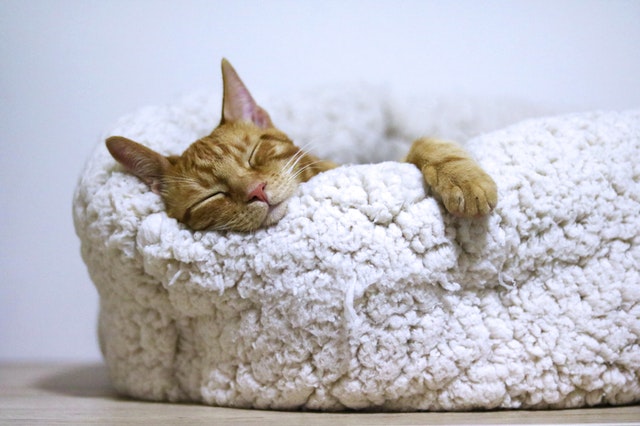The Importance of Sleep:
Sleep is an often underestimated necessity for good health. It’s common for people to boast about how many hours of exercise they have undertaken in a day or in a week. However it would be unusual to hear someone boasting about the amount or the quality of sleep they have had. One in three people struggle to sleep meaning that even if it is not intentional their quantity and quality of sleep is poor.
There is a huge amount of research on the importance of sleep and its relevance to health in all of the following areas:
Immunity: A recent study found that that sleeping only 4 hours per night, as opposed to the recommended 8, could deplete some of your immune cells by as much as 70%. Also proteins called cytokines need to increase when you have an infection and sleep deprivation may decrease production of these protective cytokines. In addition, infection-fighting antibodies and cells are reduced during periods when you don’t get enough sleep. Lack of sleep can also affect how fast you recover if you do get sick.
Mood: In a study of college students, sleeping less than 5 hours per night was shown to amplify anger. In addition, lack of sleep means that you are less able to cope with stress; it’s therefore not surprising that chronic sleep debt can lead to long-term mood disorders such as depression and anxiety. Even the occasional late night will affect memory and concentration.
Obesity: Studies have shown that people who sleep less than 7 hours a day tend to gain more weight and have a higher risk of becoming obese than those who get 7 hours. Lack of sleep has been found to trigger increased levels of ghrelin and decreased levels of leptin (hunger related hormones), leading to increased hunger and appetite. This therefore affects food choices and can lead to higher consumption of high starch and unhealthy foods. More time awake creates increased opportunities to eat and therefore shorter fasting periods. Fasting has been shown to build a stronger circadian rhythm, which helps you sleep deeper and better. Studies have found that fasting may reduce your night-time awakenings and decrease leg movements.
Heart Disease: Sleep is required for healing and repair of your heart and blood vessels. Lack of sleep and sleep problems also means that your blood pressure is elevated for longer and is therefore a risk factor for heart attack and stroke.
Diabetes: Poor diet will lead to blood sugar issues which in turn can cause disruption to sleep. Reduced sleep and poor quality sleep can worsen blood sugar control. The kidneys are also affected by high blood sugar and high blood pressure issues and this can result in increased need for urination which will further disrupt sleep.
Appearance: Lack of sleep causes oxidative stress and can lead to premature wrinkling and dark circles under the eyes. Excess cortisol (stress hormone) can break down collagen, the protein that keeps skin smooth.
So you can see it is so important to prioritise your sleep as part of a healthy lifestyle.

A healthy diet is important for quality sleep:
- Ensure balanced blood sugar levels by eating quality natural foods with protein and slow releasing carbohydrates (green vegetables, beans, lentils, eggs, nuts, seeds).
- Include magnesium-rich and calming superfoods in your diet (nuts, seeds, avocados and oily fish).
- Avoid refined sugary foods & drinks.
- Reduce caffeine & alcohol consumption.
- Avoid eating large meals before bedtime as well as spicy foods (if these are not a normal part of your diet).
- Fasting from dinner until the morning is good for health (as mentioned above). If your body is not adapted to this you may need a small snack before bed (eg. an oatcake with nut butter & sliced banana or natural yoghurt with seeds/fruit and cinnamon). When you are sleeping better you can work on increasing your overnight fasting time and your body will adapt to and benefit from this.
Routine is also important:
- Develop a regular pattern to train your body to go to bed and wake up at the same time each day. This will help to set your body’s internal clock.
- Before bed use helpful rituals to remind your body it is time to sleep. For example a warm bath (add a couple of drops of lavender), breathing exercises, reading and relaxation.
- Your bedroom should be quiet, dark, comfy, not too hot or cold and free from smartphones and tablets, work documents and clutter. Ideally never take technology in to the bedroom.
- If you struggle to sleep at night try to avoid daytime naps which may not be helpful. If you must nap make it less than an hour and before 4pm.
If you can’t fall asleep after 20-30 mins, get up and do something quiet and restful, such as reading in dim light, then try again.
There are a number of natural products available from the Natural Dispensary to help you with your breathing – see links below. Up to 15% discount for clients only – code available on request.
Dormeasan Sleep Valerian Hops Oral Drops 50ml
Magnesium Sleep Body Lotion 180ml
Also Curcumin is a natural anti-inflammatory and pain killer; helping with sleep is another of its many benefits: CurcuminX4000 With Fenugreek Seed Extract
References:
https://pubmed.ncbi.nlm.nih.gov/7871104/
https://pubmed.ncbi.nlm.nih.gov/28190167/
https://www.nhs.uk/live-well/sleep-and-tiredness/why-lack-of-sleep-is-bad-for-your-health/